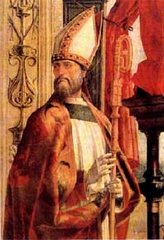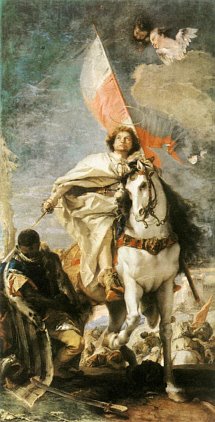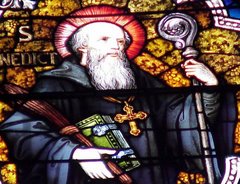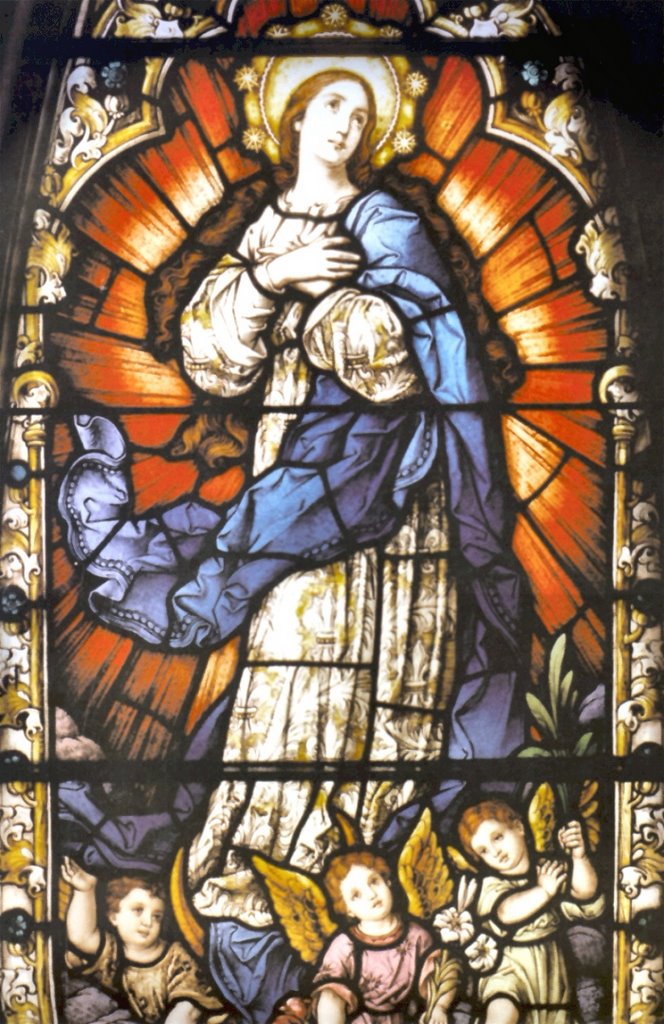
Pierre Martin Ngô Đình Thục, was Roman Catholic Archbishop of Huế, Vietnam. He was born in Huế, on October 6, 1897, the eve of the Feast of Our Lady of Victory, in Phu-Cam, Vietnam, Archdiocese of Huế. His family was of some distinguishment, though some of them, later on, met with an undesirable end.[1] Thục became a minor seminarian at age twelve in An Ninh, where he studied for about eight years, and became a major seminarian at the major seminary in Huế, where he studied philosophy. Thục was ordained to the priesthood by the Apostolic Vicar of Huế Bishop Eugène-Marie-Joseph Allys on Dec. 20, 1925, and taught at the Sorbonne in Paris for about a year before he went to Rome to study theology, where he was awared three doctorates, from the Pontifical Gregorian University, in philosophy, theology, and Canon law. He then returned to Vietnam, two years after his ordination, where became a professor at the College of Vietnamese Brothers in Huế, a professor at the major seminary in Huế, and Dean of the College of Providence.
On January 8, 1938, Fr. Thục was chosen by Pope Pius XI to direct the Apostolic Vicariate at Vinh Long and act as bishop. His Holiness sent, as his emissary, Archbishop Antonio Fernand Drapier, Apostolic Delegate to Indochina, to consecrate Thuc as Bishop for this position[2], in which Thục may have also been delegated special faculties to consecrate bishops without a mandate[3]. Nineteen years later, Bishop Thục founded the Dalat University and in 1960, Thục was delegated, by John XXIII, successor to Archbishop Jean-Baptiste Urrutia, who resigned his post after dozen years, as Archbishop of Huế. After the Council, Archbishop Thục was not allowed to return to Vietnam and thus began his life in exile, first in Rome, then on in Toulon, France.[4]
Five years after the Palmar de Troya incidents, May 7, 1981, Bishop Thục consecrated Fr. Michel Louis Guerard des Lauriers, O.P. a principle theologian and author of the Ottaviani Intervention. Later on that year, october 17, while in Munich, Germany, bishop Thục consecrated Fathers Moises Carmona, and Adolfo Zamora from Mexico.
About a year later, Thục conditionally consecrated the former Old Catholic bishop, Christian Datessen. Earlier that year[1982], Thục issued a declaration pronouncing his sedevacantism, after which he departed Germany for the United States at the invitation of Bp. Louis Vezelis O.F.M., a Franciscan former missionary priest, who was consecrated in the Thục line, with whom he took up residence.[5] Archbishop Thục then fell into the hands of a group of Vietnamese priests, while in New York, and was taken to a Vietnamese Roman Catholic monastery [the Vietnamese American religious Congregation of the Mother Co-Redemptrix] in Missouri, where he was inaccessible, and eventually died, for an uncertain reason, perhaps, on December 13, 1984.
________________
End Notes:
[1] His brother, Ngô Đình Diệm, was the first president of South Vietnam, and was later assassinated on Nov. 1, 1963, his nephew was Cardinal François Xavier Nguyễn Văn Thuận; Thục's brother, Ngô Ðình Khôi, was buried alive for refusing to be minister in the communist regime. Thục's other brothers Ngô Đình Nhu and Ngô Đình Cẩn were assassinated as well. Thục and Luyen were the only members of the family who escaped assassination, Luyen by serving as ambassador in London, and Thục was in Rome for the second Vatican Council.
[2] After Archbishop Drapier had consecrated Thục, he [Drapier] neglected to consecrate the other candidates as bishops and thus appointed Thục to do so. Philippe Nguyen-Kim-Dien was among those candidates whom Thục, in turn, consecrated as Bishop of Can-Tho right after his own consecration, and who acted as Thục's successor as Archbishop of Hue; he [Nguyen-Kim-Dien] is also thought to have been a Communist sympathizer.
[3] It is believed that when in Rome, Thục had a private audience with His Holiness Pius XI and obtained from him, and some years later again from Pius XII, an apostolic mandate to consecrate bishops in times of dire necessity when communications would be nearly impossible or the flock in danger. This is recorded in the Dec. issue of the"The Seraph" in 1983 where is written his advice to the Vietnamese bishops, whom he had consecrated, of what to do if ever the Communists took power, "not to publish the names of newly ordained priests; request from the Holy See the faculty for each Bishop to name one or two successors without having to request authorization from the Holy See in case of breakdown of communication with the Vatican." Pope Pius XI is supposed to have granted Thục a motu proprio stating "'In virtue of the fullness of powers of the Holy Apostolic See, we institute as our legate Pierre Martin Ngô-Dinh-Thục, titular Bishop of Saigon, for purposes known to us, with all the powers required.' Given at Rome, near Saint Peter, on March 15, 1938, in the seventeenth year of our pontificate."
[4] According to the logs, Archbishop Thục was Archbishop of Huế from 1960 to 1968 when he was forced to resign by Paul VI. Thục recorded "Paul VI had bad feelings toward my family, and especially towards myself going to the extent of even imposing my resignation as archbishop before the fixed age for the age for retirement of bishops. In my stead, he named one of his favorites imbued with the political philosophy of 'opening to the East.'"
[5] Bp. Vezelis operates a friary in Rochester, NY, where Thục resided from December 1982 until January 1984.
[P. S.] Thục was the principal consecrator of Bishops Antoine Nguyên Van Thien (born 1906) and Michel Nguyên Khác Ngu (born 1909), the oldest living Catholic bishops in Vietnam.
________________
Related Posts:
- An Interview with Fr. Neil Webster on the Last Days of Bishop Thục by MHFM
- Bishop Louis Responds: His story of how it all happened - on the last days of Bishop Thục.
External Links:
- Abp. Thục: A Brief Defense by Bp. Daniel Dolan
- The Validity of the Thục Consecrations by Fr. Anthony Cekada
- Declaration of Archbishop Thục
- Pierre Martin Ngo Dinh Thuc Wikipedia article
















